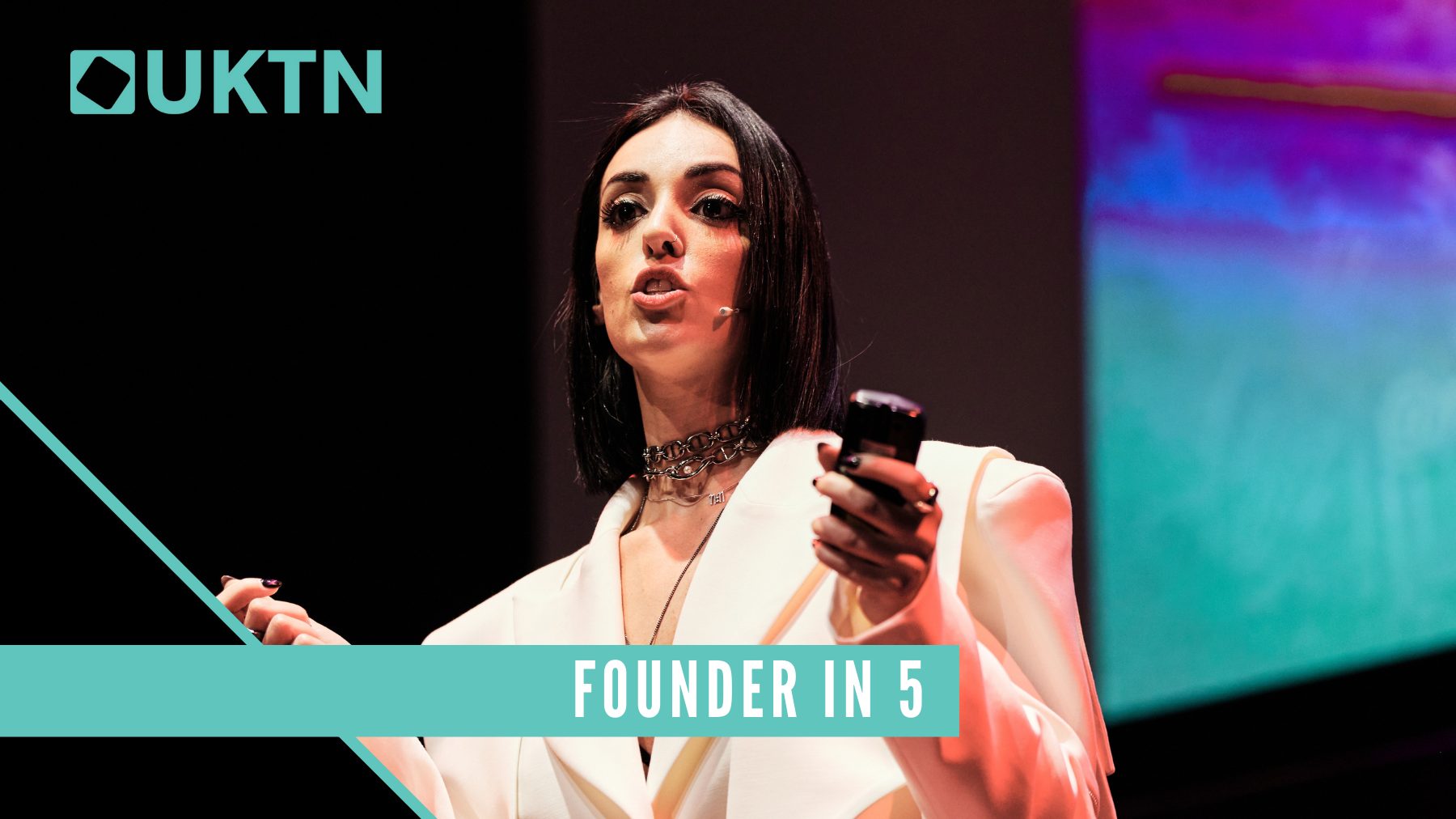Bianca Cefalo is the co-founder and CEO of Space DOTS, a startup building modular devices for companies to test materials in space.
Founded by Cefalo and James Sheppard Alden in 2021, Space DOTS‘ first product, the Barnacle DOT, is a 10cm x 10cm x 1cm module that hitches a ride on rocket missions to provide “in-situ environmental testing of advanced materials and small components”.
The company has raised around £1.2m in funding and currently has five members of staff.
Before founding Space DOTS, Cefalo was the space systems thermal product manager for Airbus Defence and Space UK.
In this week’s Founder in Five Q&A, Cefalo shares her top three funding tips, the best and worst parts of her job, and why she thinks healthcare is ripe for disruption.
1. What funding advice would you give to a first-time founder?
Bianca Cefalo: As a first-time founder myself, with an engineering and sales background and zero knowledge of what a funding strategy was, here are my top tips:
• Build a network: apply for business incubation and acceleration programmes, attend startup events, join entrepreneurship groups, and network with other founders and investors as much as you can.
• Educate yourself on all the possible funding routes and how to pitch your business. Become an avid reader of books, blogs, attend webinars and workshops and seek advice from experienced founders and investors.
• Start with bootstrapping: it will help you learn how to operate on a limited budget, make decisions based on cash flow, and be lean and agile.
2. What are the best and worst parts of your job?
BC: The best part of my job is that it’s not a job at all, but rather a lifestyle I’ve chosen for myself and that allows me to develop technologies and services that can contribute to humankind’s evolution beyond our terrestrial cradle, whilst being surrounded by a network of incredibly inspiring visionaries and optimistic dreamers. It’s fun, challenging, and extremely rewarding (at times!).
The worst part of it is the loneliness and the high-stress levels caused by the inevitable long hours, rejections, failures, financial pressures, uncertainty, and tough decisions that need to be made on a daily basis.
3. How do you prevent burnout?
BC: I ruthlessly prioritise self-care, set very strong boundaries, take regular breaks and openly ask for help and support. I say no to anything and anyone that doesn’t serve my business purpose, my personal growth, my wellbeing and the comfort of my team, friends and family (who are my biggest supporters).
I have one full day a week where I am completely disconnected from my laptop and my co-founder (he does the same), and I focus solely on activities that spark my creativity, short trips, sport or simply catching up on sleep. I recognise early signs of burnout and (without guilt) take a step back or some days off, before it’s too late.
4. Excluding your sector, which nascent technology holds the most promise?
BC: My top favourites: artificial Intelligence (AI) and blockchain.
Needless to say, AI is showing the potential to transform many industries, from healthcare to finance to transportation. With advances in machine learning, natural language processing, and computer vision, AI can help automate processes, improve decision-making, and create new products and services (I use OpenAI on a daily basis myself, for instance).
Meanwhile, blockchain has a huge potential to disrupt entire industries from finance, to real estate, supply chain management and even voting systems.
5. Excluding your own, what’s a sector that’s ripe for disruption?
BC: Healthcare. Despite significant advances in medical technology, healthcare delivery has remained relatively unchanged for decades, costs continue to rise, delivery is super fragmented, the global population is ageing, and there’s a vast amount of data generated which is often siloed and difficult to access.
Startups working on telemedicine platforms, digital health tools, and AI-powered diagnostics have the potential to improve delivery, reduce costs, and improve patient outcomes. Whilst reverse ageing technology, human implants, and longevity research can disrupt the industry by transforming how we think about and approach ageing and chronic disease, and enabling more effective, personalised, and efficient treatments.
Founder in Five – a UKTN Q&A series with the entrepreneurs behind the UK’s innovative tech startups, scaleups and unicorns – is published every Friday.
The post Space DOTS founder: ‘I say no to anything that doesn’t support growth or wellbeing’ – Fi5 appeared first on UKTN | UK Tech News.


